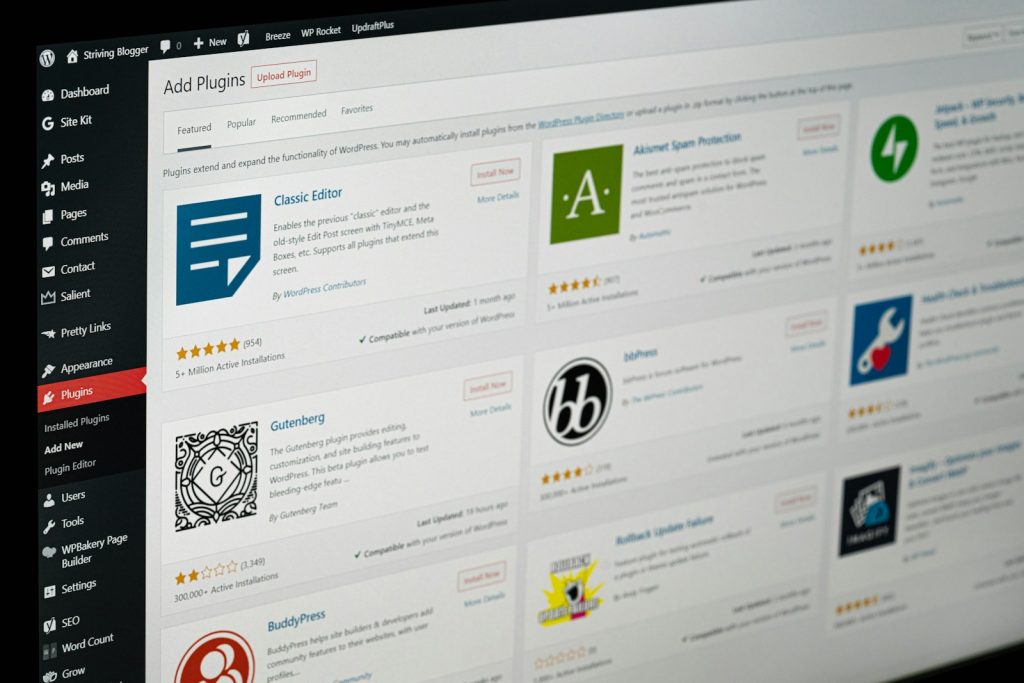Resolving WordPress Theme Compatibility Issues: In the vast landscape of WordPress themes, ensuring seamless integration with your website can sometimes pose challenges due to compatibility issues. This extensive guide explores the nuances of troubleshooting WordPress theme compatibility problems, offering detailed solutions to ensure your website functions flawlessly.
1. Understanding Theme Compatibility:
Theme compatibility refers to the seamless interaction between your chosen theme and the WordPress platform, plugins, and other website components. It’s crucial for a smooth user experience, as compatibility issues can lead to layout inconsistencies, broken functionalities, and errors. Factors contributing to compatibility issues include outdated code within themes, conflicts with plugins, or improper implementation of theme features.

2. Identifying Compatibility Issues:
Common signs of theme compatibility issues include layout distortions, broken elements, or errors in specific browsers. To diagnose these issues, users can perform initial diagnostics by checking browser console logs for error messages and disabling plugins individually to pinpoint the root cause.
3. Theme and Plugin Conflict Resolution:
Conflicting plugins can significantly impact theme compatibility and vice versa. Resolving conflicts involves systematically deactivating plugins and testing theme functionalities to isolate the problematic components and find suitable resolutions.
4. Analyzing Theme Code and Features:
Inspecting theme code for deprecated functions, CSS conflicts, or other compatibility issues is essential. Users can troubleshoot specific theme features like sliders or custom post types by reviewing documentation and applying appropriate techniques.

5. Updating Themes and Plugins:
Updating themes and plugins is critical to maintaining compatibility with the latest WordPress version. Users should follow best practices for updating, including backing up their website and testing updates in a staging environment to prevent compatibility issues.
6. Testing Across Browsers and Devices:
Thorough testing across various browsers and devices ensures broad compatibility. Tools like browser developer tools and online testing platforms facilitate efficient cross-browser testing, helping users effectively identify and address compatibility issues.
7. Theme-Specific Troubleshooting Techniques:
Popular WordPress themes like Astra, Divi, or Avada may have unique compatibility challenges. Utilizing theme-specific troubleshooting techniques and referring to resources provided by theme developers can aid in resolving these issues.

8. Seeking Support and Community Resources:
Users can seek support from theme developers or WordPress community forums when troubleshooting compatibility issues. Accessing relevant resources and forums allows users to tap into experienced developers’ and community members’ knowledge and experience.
Troubleshooting WordPress theme compatibility issues may present obstacles, but they can be overcome with the right strategies and resources. Following the comprehensive guide outlined above, users can effectively identify, analyze, and resolve compatibility issues, ensuring their website operates seamlessly with their chosen theme.
FAQs: Troubleshooting WordPress Theme Compatibility Issues
1. What are WordPress theme compatibility issues, and why are they important?
WordPress theme compatibility issues refer to problems that arise when a theme does not work seamlessly with other elements of a WordPress website, such as plugins, browsers, or devices. Addressing compatibility issues is crucial to ensure a smooth user experience and prevent layout distortions, broken functionalities, or errors on the website.
2. How can I identify compatibility issues with my WordPress theme?
Common signs of compatibility issues include layout inconsistencies, broken elements, or errors in specific browsers or devices. Users can perform initial diagnostics by checking browser console logs for error messages and disabling plugins to isolate the root cause of the problem.
3. What should I do if my theme conflicts with the plugins on my WordPress site?
If your theme conflicts with plugins, you can systematically deactivate plugins one by one and test theme functionalities to identify the conflicting components. Once the conflicting plugin is identified, you can either seek alternative plugins or contact the plugin developer for assistance in resolving the compatibility issue.
4. How can I analyze my theme’s code for compatibility issues?
Inspecting the theme code for deprecated functions, CSS conflicts, or improper implementation of these features can help identify compatibility issues. Users can refer to theme documentation or utilize debugging tools to troubleshoot specific features like sliders or custom post types.
5. Is it essential to update my WordPress theme and plugins regularly?
Yes, regularly updating your WordPress theme and plugins is crucial to maintaining compatibility with the latest version of WordPress and ensuring optimal performance and security. However, it’s essential to follow best practices for updating, such as backing up your website and testing updates in a staging environment to prevent compatibility issues.
6. How can I test my theme for compatibility across different browsers and devices?
Thorough testing across various browsers and devices is essential to ensure broad compatibility. Users can utilize browser developer tools or online testing platforms to conduct cross-browser testing efficiently, identifying and addressing compatibility issues effectively.
7. Are there specific troubleshooting techniques for popular WordPress themes?
Popular WordPress themes like Astra, Divi, or Avada may have unique compatibility challenges. Users can refer to theme-specific documentation or resources theme developers provide to troubleshoot compatibility issues effectively and find suitable resolutions.
8. Where can I seek support for troubleshooting WordPress theme compatibility issues?
Users can seek support from theme developers or WordPress community forums when troubleshooting compatibility issues. Accessing relevant resources and forums allows users to tap into experienced developers’ and community members’ knowledge and experience to resolve compatibility issues effectively.

 With a keen eye for emerging technologies and a thirst for knowledge, I thrive on staying ahead of the curve and diving deep into the realms of coding, AI, and beyond. Whether it's experimenting with new software, tinkering with hardware, or envisioning the future of technology, I'm dedicated to making an impact and shaping the digital landscape. Join me on this exhilarating journey as we unlock the possibilities of tomorrow, one line of code at a time.
With a keen eye for emerging technologies and a thirst for knowledge, I thrive on staying ahead of the curve and diving deep into the realms of coding, AI, and beyond. Whether it's experimenting with new software, tinkering with hardware, or envisioning the future of technology, I'm dedicated to making an impact and shaping the digital landscape. Join me on this exhilarating journey as we unlock the possibilities of tomorrow, one line of code at a time. 


